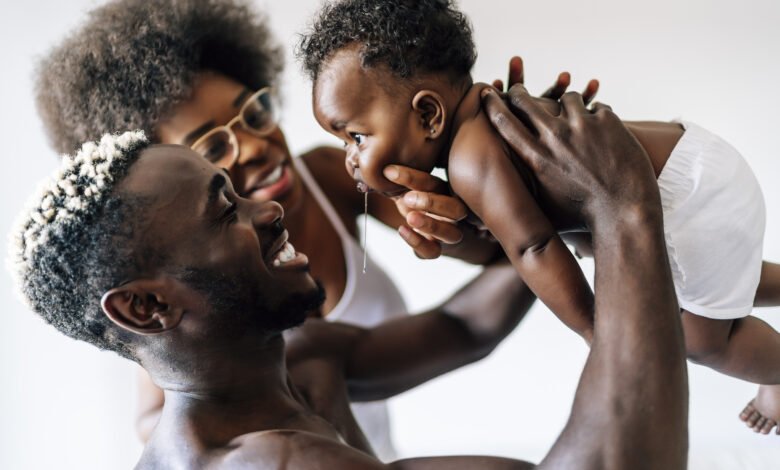
A Question of Legacy: Should Black Americans Be Having More Children?
The United States is in the midst of a profound demographic shift. With the national fertility rate falling to 1.62 births per woman in 2023—the lowest ever recorded and well below the 2.1 replacement level—a national conversation about our future has begun. But for Black Americans, this is not a simple debate about economics or social security. It is a deeply complex question that touches upon our history, our health, our economic survival, and the very future of our legacy in a nation that has not always protected our children.
To ask whether Black Americans should have more children is to ask a question laden with centuries of context. It forces us to confront a brutal reality: for Black families, the decision to bring a child into the world is an act of radical hope in the face of daunting, systemic challenges.
The Unvarnished Truth in the Numbers
While the national birth rate is declining, a closer look at the data reveals a critical nuance. According to the Centers for Disease Control and Prevention (CDC), the fertility rate for Black women in 2023 was 1.76 births per woman. Though this represents a steep decline from previous generations, it is currently higher than the rate for White women (1.54).
However, to focus solely on the birth rate is to miss the life-or-death reality that shapes Black reproductive choices. The more urgent statistics are those concerning survival.
- The Maternal Mortality Crisis: Black women are 2.6 times more likely to die from pregnancy-related complications than White women. In 2021, the maternal mortality rate for Black women was a staggering 69.9 deaths per 100,000 live births, a rate comparable to that in developing nations. This is not about genetics; it is a direct result of systemic inequities, implicit bias in healthcare, and a lack of access to quality prenatal and postnatal care.
- The Infant Mortality Gap: The tragedy continues after birth. The mortality rate for Black infants is 10.55 per 1,000 live births—more than double the rate for White infants (4.41). Our babies are dying at alarming rates from preventable causes.
For further reading on this data, see:
- CDC: Provisional Vital Statistics for 2023
- CDC: Pregnancy-Related Deaths, United States, 2017–2019
- KFF Analysis of Infant Mortality Data
The Crushing Weight of Choice
The decision to start or expand a family is never made in a vacuum. For Black Americans, it is a calculation that must account for severe economic and social pressures.
The financial burden is immense. Black women earn, on average, just 67 cents for every dollar paid to White, non-Hispanic men. This wage gap, combined with the exorbitant cost of childcare—which often exceeds $10,000 per year—makes raising a child a monumental financial challenge. The rising educational attainment of Black women, a tremendous achievement, also means many are delaying childbirth as they build careers and pay off student loan debt.
Beyond economics, there is a profound social consideration: Can we trust that the systems in this country will protect our children? When we see the persistent racial disparities in the justice system, in education, and in healthcare, the decision to bring a Black child into this world becomes a heavy one.
The Stakes of a Demographic Shift
The data on birth rates is more than an academic exercise; it carries profound implications for the nation’s future and the political and economic destiny of the Black community. Understanding these stakes is crucial as we navigate the path forward.
The National Challenge: An Economy Out of Balance
The significance of America’s fertility rate falling below the 2.1 replacement level cannot be overstated. A nation’s economic engine is powered by its people. When the younger, working-age population shrinks, it creates a fundamental imbalance. Fewer workers are left to support a growing population of retirees who depend on social safety nets.
This places immense strain on programs like Social Security and Medicare, which are funded by payroll taxes from the current workforce. Projections from the Social Security Administration have consistently warned that, without intervention, the funds will face shortfalls, potentially leading to reduced benefits. For the nation, this demographic shift threatens long-term economic growth, reduces the tax base needed for infrastructure and defense, and creates a future where a smaller generation bears the economic weight of a larger one.
Disproportionate Impact: When the Nation Catches a Cold, Black America Gets the Flu
While a strained national budget affects everyone, the consequences are not distributed equally. Historically, when resources become scarce and tough budget decisions are made, communities that rely most on social programs are the first to feel the impact. Black families, who face a persistent racial wage gap and systemic economic barriers, often depend more on these programs for stability.
A shrinking national workforce could mean cuts to everything from housing assistance and food programs to federal education grants—all of which are critical tools for battling systemic inequality. Furthermore, the increased burden of care for an aging population often falls heavily on Black families, where multigenerational caregiving is common. With fewer children per family, the immense responsibility of caring for aging parents and grandparents falls on fewer shoulders, adding another layer of economic and emotional pressure to households already stretched thin.
The Politics of Population: Representation and Power
For the Black community, the implications of a birth rate below the replacement level are starkly political. In the American system, population size is directly linked to political power. The U.S. Census, conducted every ten years, is not just a headcount; it is the mechanism that determines how many congressional seats each state receives and how hundreds of billions of federal dollars are allocated.
A stagnant or declining population share can lead to diminished political representation in Washington D.C., and in state legislatures. This translates into fewer advocates in the halls of power to champion critical legislation like the Black Maternal Health Momnibus Act or to fight against the racial disparities in our justice and healthcare systems. When a community’s demographic footprint shrinks, so does its ability to command the attention of policymakers. The fight for equity, justice, and the resources needed for our communities to thrive becomes exponentially harder. Therefore, the conversation about birth rates is inextricably linked to the preservation of our political voice and our power to shape the future of the nation.
A Community’s Response: Beyond Survival to Legacy
The question, therefore, may not be if we should have more children, but rather, how do we build a world where our children are safe, healthy, and can thrive? The answer lies not in a national policy, but in the resilience and innovation of our own community. This is not about retreat; it is about fortification.
- Reclaiming Our Health and Birthing Experience: We are witnessing a powerful, community-led movement to reclaim our health. The rise of Black doulas and midwives is a direct response to the failures of the medical establishment. These professionals provide culturally competent advocacy, support, and care that is proven to improve maternal and infant outcomes. Supporting organizations like the National Black Doulas Association and demanding that hospitals and insurance providers recognize their value is a critical first step.
- Economic Fortification Through Ujamaa: We must practice cooperative economics (Ujamaa) with renewed vigor. By intentionally supporting Black-owned businesses—from banks and credit unions to daycare centers and grocery stores—we strengthen our community’s economic base. This creates jobs, circulates wealth, and builds a more stable economic foundation upon which families can grow. Financial literacy workshops in our churches and community centers are essential tools for empowerment.
- Demanding Political Accountability and Action: Our resilience must be matched by relentless political advocacy. We must champion and demand the passage of legislation like the Black Maternal Health Momnibus Act, a comprehensive set of bills designed to address every dimension of the maternal mortality crisis. We must advocate for universal pre-K, subsidized childcare, and paid family leave—policies that support all families, but which would disproportionately benefit Black families.
Conclusion: The Ultimate Act of Optimism
There is no single, correct answer to whether Black Americans should have more children. That choice remains deeply personal, a sacred decision for each individual and family.
But the community’s answer is clear. Our mission is to fight for a future where that choice is made out of hope, not fear. It is to build a world where Black mothers do not have to risk their lives to give life, and where Black children are born with every opportunity to fulfill their boundless potential. The ultimate act of resilience, the ultimate act of optimism, is to build a future worthy of our children. That work, in villages and communities across the nation, is already underway.






